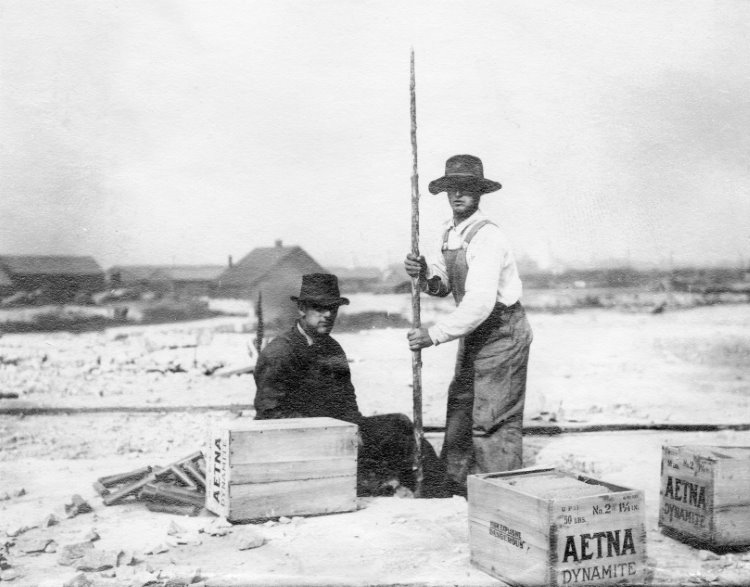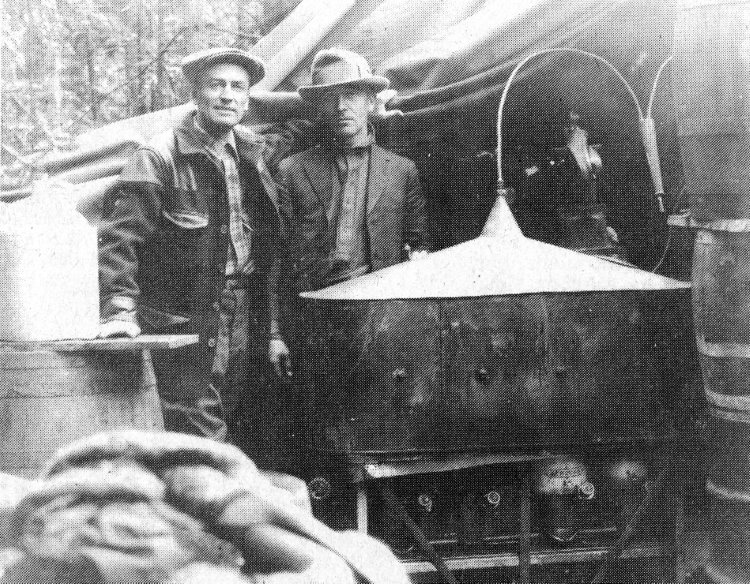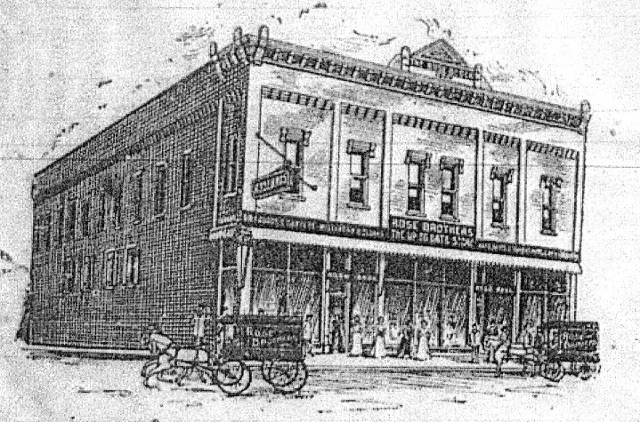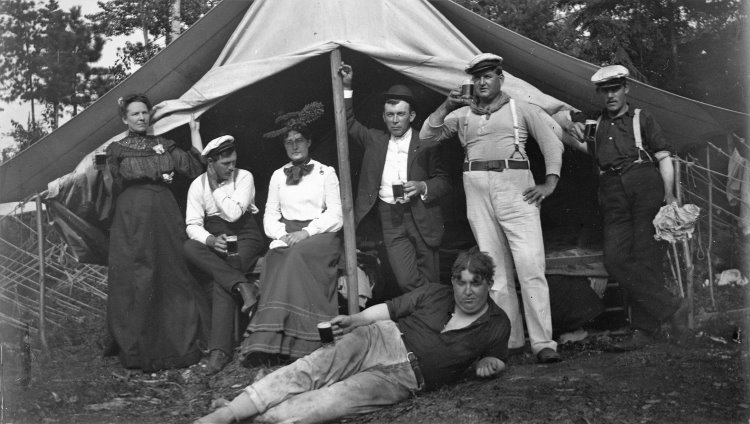
Blasting preparation at the WML company quarry in Manistique. Photo courtesy Gulliver Historical Society, Leon Nicholson collection.
The son of Irish immigrants, pioneer Manistique industrialist George Nicholson was born on February 8, 1852 in Hartford, Wisconsin. As a young man, Nicholson attended business school in Appleton, Wisconsin. His first venture into the world of commerce came in Graysville, Wisconsin, where he operated a general merchandise store. After relocating to Chilton, Wisconsin, he opened a clothing and dry goods store and also had interest in a grain elevator.
Nicholson married Elizabeth Gray of Harrison, Wisconsin, on Christmas day, 1876. It was in the early 1880s that Nicholson entered the lime business, becoming a partner in the Western Lime and Cement Company, growing in experience and expertise in this specialized field. During the winter of 1888, Nicholson explored the length of Wisconsin’s Door Peninsula on snowshoes looking for dolomite formations, before crossing Green Bay to Fayette and Garden in the Upper Peninsula.



